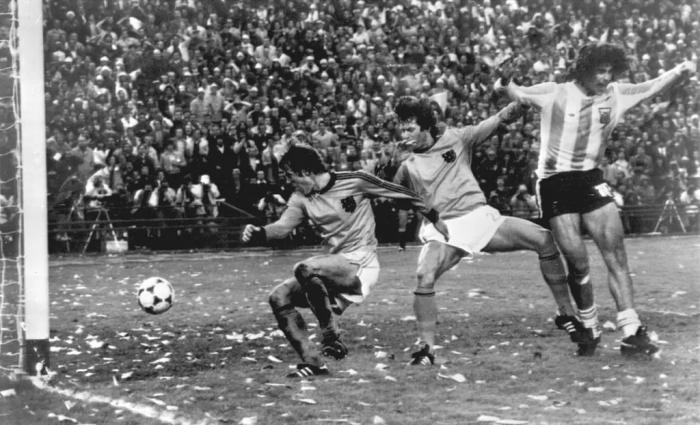
The World Cup in Qatar started on November 20, the same date an exceptional woman who, on another inaugural day of this world event revealed the suffering of a country, at that time blinded by the magic of the ball, was saying goodbye to the earth.
In 1978, Argentina hosted, from June 1st, the Soccer World Cup, under the excesses of the dictatorship of Jorge Rafael Videlas. Like the Nazis at the 1936 Olympic Games, Videla used the world cup to wipe the face of a government that persecuted, kidnapped and killed thousands; a number it is said to surpass the 30,000 people.
However, the shameless dictator, who had the nerve to say at the opening ceremony that this was the World Cup of peace by invoking the Almighty God, did not know was that his name was being dragged in the mud just a few meters away, in the Plaza de Mayo in Buenos Aires, where Hebe de Bonafini was denouncing to the world the abuses of the dictatorship in her country.
It was the first time that the demands of the Mothers of Plaza de Mayo were heard. Hebe and the Mothers scored the first goal of that 1978 world cup for their disappeared children, for those she never found, and for the more than 30,000 who suffered the ravages of a bloodthirsty State terrorism.
While soccer deafened the Monumental stadium of the South American city, death ruled only 400 meters away, in the Navy Mechanics School, the sadly notorious ESMA, a place where the captors killed while watching the matches.
Hebe de Bonafini led a collective maternity, in a struggle for the children of that people, for all those mothers who, even during the World Cup, saw 50 others disappear, nine of them pregnant women, some of whose children are still being sought.
"I covered the '78 World Cup with eyes wide open, but without knowing exactly where to look. I remember an interview I did with Dutch attacker Johnny Rep, hours before the final against Argentina. "We're afraid to win," he told me. That's how I started the article, but without really understanding what fear Rep was alluding to. The team coached by César Menotti won (3-1) in extra time. The torturers at ESMA watched the match together with the prisoners they used as slave labor. Some of them were taken out into the streets in a car to show them that nobody cared about them. That the people were finally celebrating a World Cup," journalist Ezequiel Fernández Moores told The New York Times in a heartbreaking account of the events.
Hebe did not say goodbye to the feelings of the mothers of the world, her example of struggle for truth and justice for the people keeps her alive. Maybe that is why, like that first day of the World Cup in 1978, she scored the first goal on the day of her goodbye, when she also motivated messages such as the one from the Argentine Vice President Cristina Fernandez: "Dearest Hebe, Mother of Plaza de Mayo, world symbol of the struggle for Human Rights, pride of Argentina. God called you on the day of National Sovereignty, it must not be a coincidence. I simply want to say thank you and goodbye."















